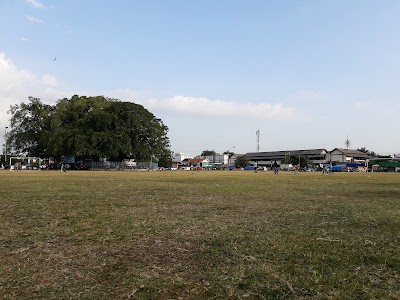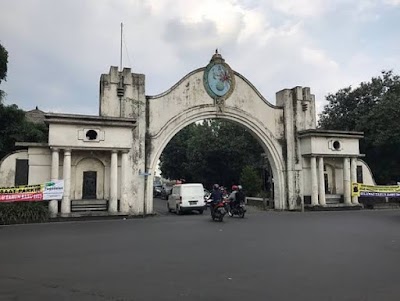Alun-Alun Kidul (Alun-Alun Kidul)
Related Places
Overview
Alun-Alun Kidul, also known as the South Square, is a cultural and historical gem nestled in the heart of Yogyakarta, Central Java, Indonesia. Often overshadowed by its more famous counterpart, Alun-Alun Utara (the North Square), Alun-Alun Kidul presents a unique charm and a myriad of activities that make it a must-visit destination for foreign tourists seeking an authentic Javanese experience.
Historically, Alun-Alun Kidul has played a crucial role in the socio-cultural fabric of the Yogyakarta Sultanate. Traditionally, this open space has served as a central hub for important public events and activities. It was once the site for royal ceremonies, traditional games, and even physical exercises conducted by the royal family. Designed as a gathering place, Alun-Alun Kidul reflects the communal spirit that is deeply rooted in Javanese culture.
The significance of Alun-Alun Kidul extends beyond its historical function. The square is adorned with twin banyan trees, known locally as "Wringin Kurung," which hold great mythological and cultural importance. According to local legend, if you can walk blindfolded between these trees without straying off course, it signifies a pure heart, and your wishes may come true. This tradition attracts both locals and tourists eager to test their luck, creating a lively atmosphere filled with laughter and camaraderie.
The best time to visit Alun-Alun Kidul is in the evening, when the area transforms into a carnival-like ambiance. The square is illuminated with colorful lights, and visitors can indulge in a variety of street food, souvenirs, and traditional performances. One of the most captivating sights is the decorated pedal cars, known as "odong-odong." These whimsically designed pedal cars, shaped like animals or characters from folklore, are adorned with vibrant lights, making a ride around the square a delightful experience for both children and adults alike.
Food enthusiasts will find Alun-Alun Kidul to be a culinary delight. Numerous street vendors offer an enticing array of local Javanese cuisine, from traditional treats like "wedang ronde" (a warm ginger drink with glutinous rice balls) to popular items like grilled corn and satay. Savoring these local delicacies while absorbing the lively atmosphere creates a delightful culinary journey that enhances your visit to the square.
Interesting facts about Alun-Alun Kidul further enrich its allure. For example, the square was historically a training ground for soldiers of the Sultanate, allowing for various drills and exercises to ensure the troops' preparedness. Additionally, the square's design facilitated crowd control and served as a venue for market activities, reflecting its practical role in urban planning.
Today, Alun-Alun Kidul remains an integral part of Yogyakarta's cultural and social landscape. It serves as a gathering point for community events, festivals, and concerts, embodying the vibrant and inclusive spirit of the Javanese people. Its evolution from a royal ceremonial ground to a beloved public space showcases the seamless blending of tradition and modernity that characterizes much of Indonesian culture.
In conclusion, Alun-Alun Kidul is more than just a historical site; it is a living monument that captures the essence of Yogyakarta's rich heritage. Whether you are eager to explore its history, partake in cultural traditions, indulge in local cuisine, or simply soak in the ambiance, Alun-Alun Kidul offers a unique and engaging experience. A visit to this charming square promises an enriching adventure that provides deeper insight into the heart and soul of Javanese culture.






